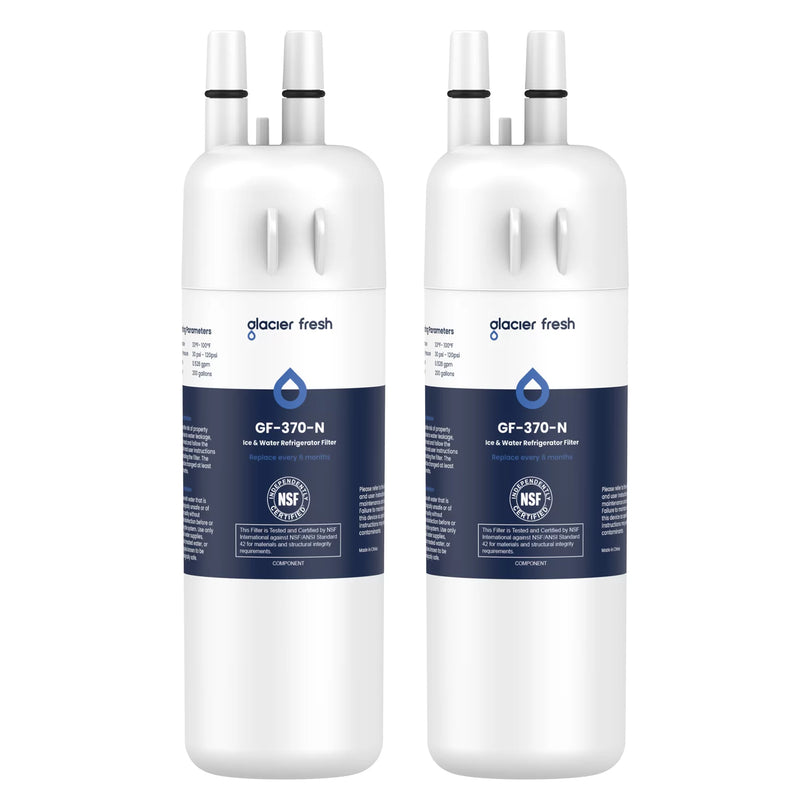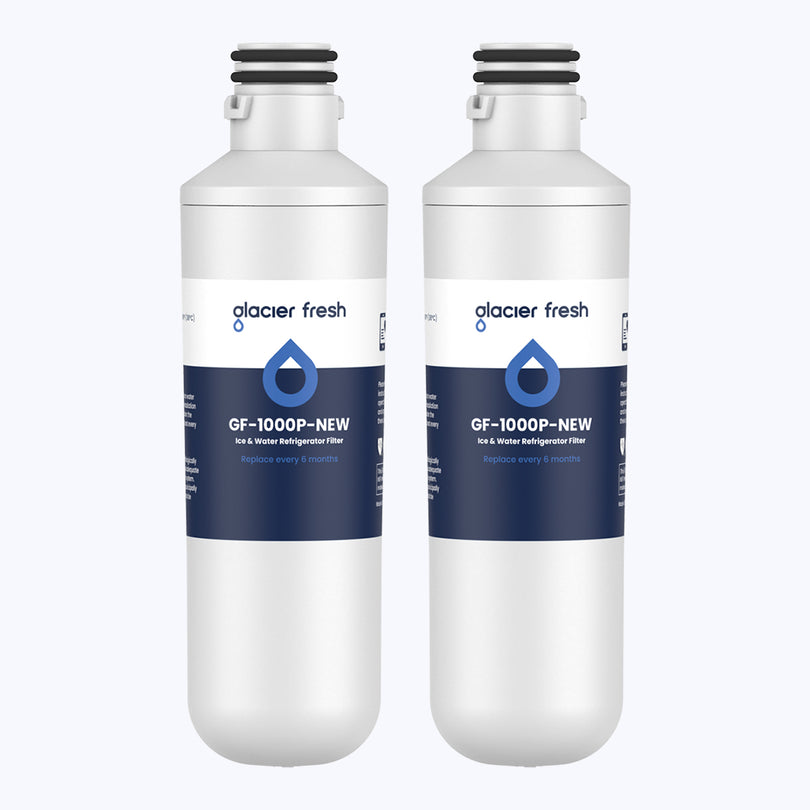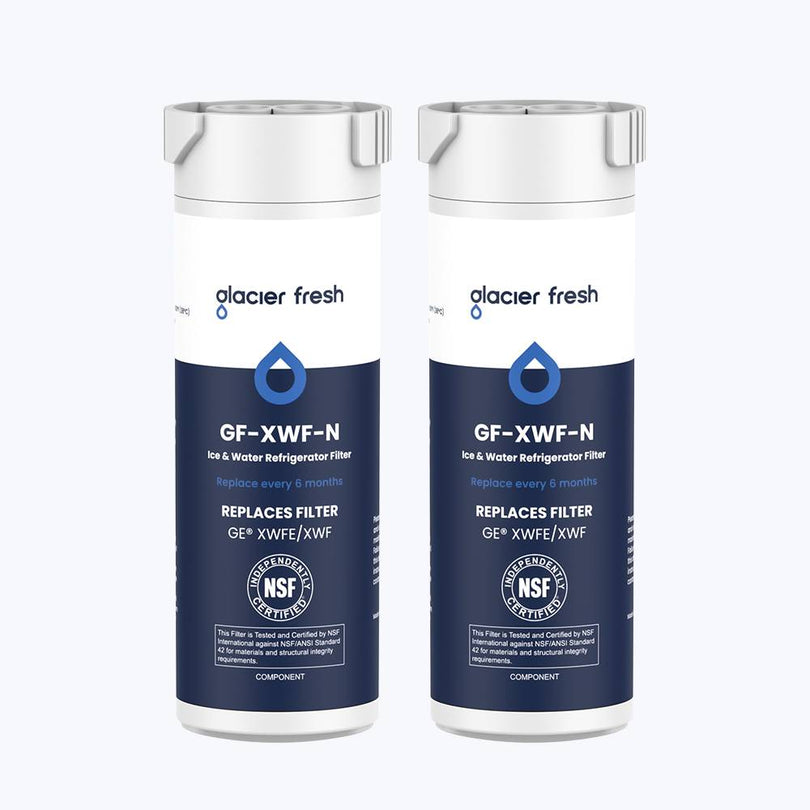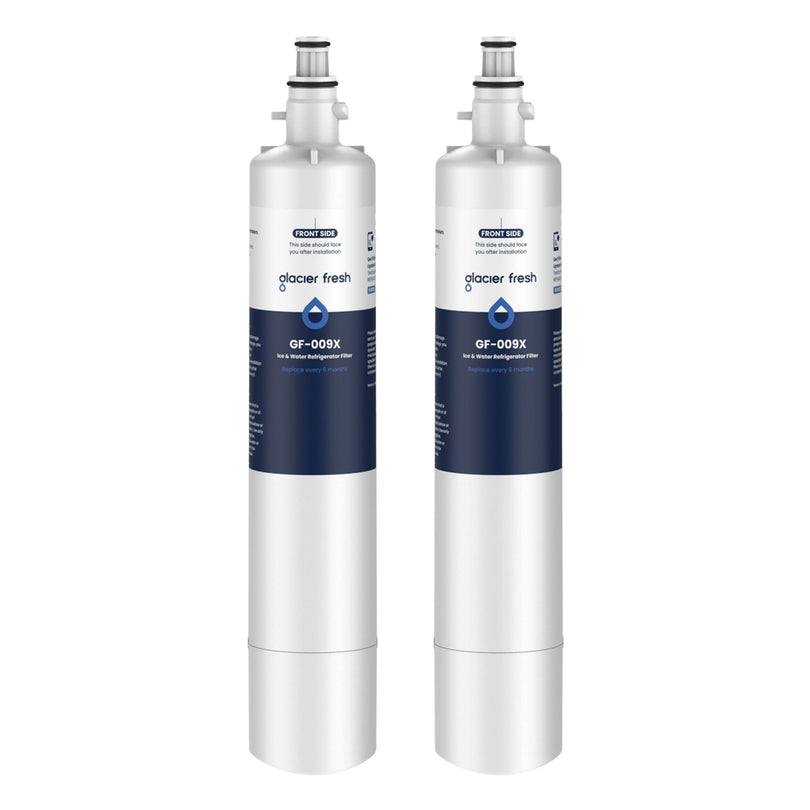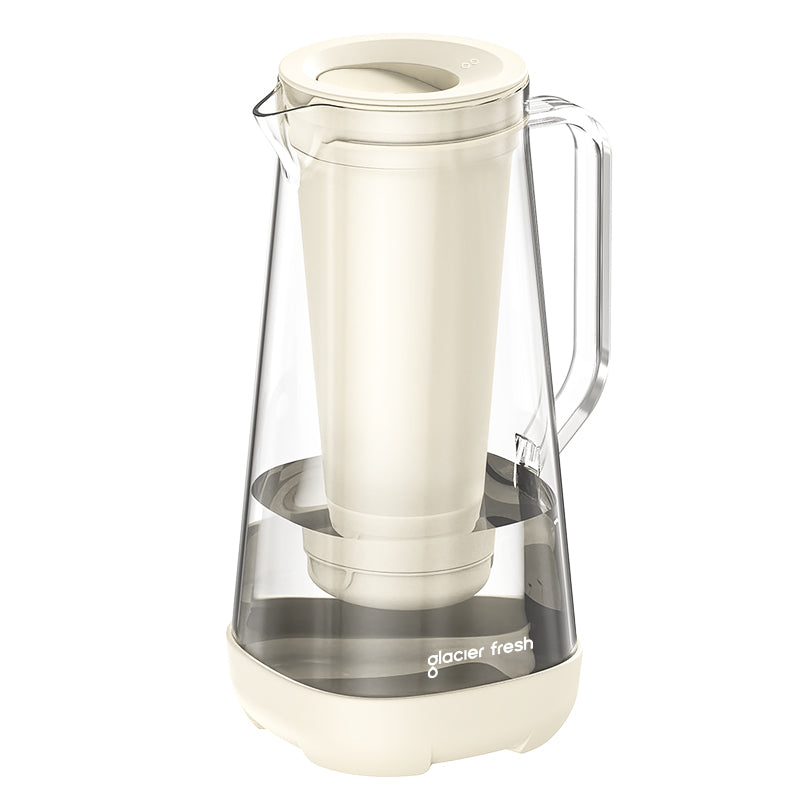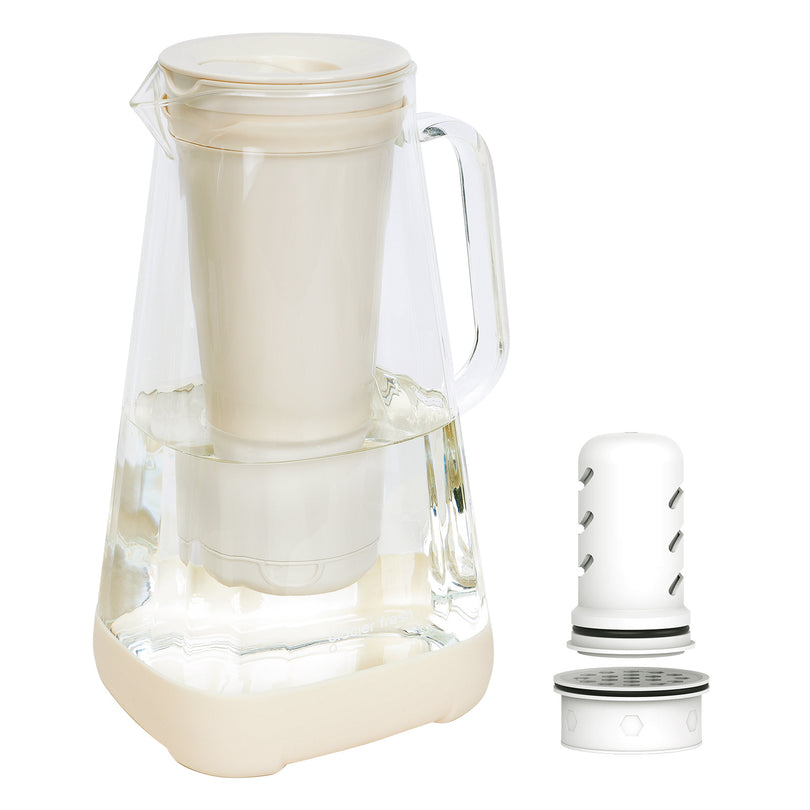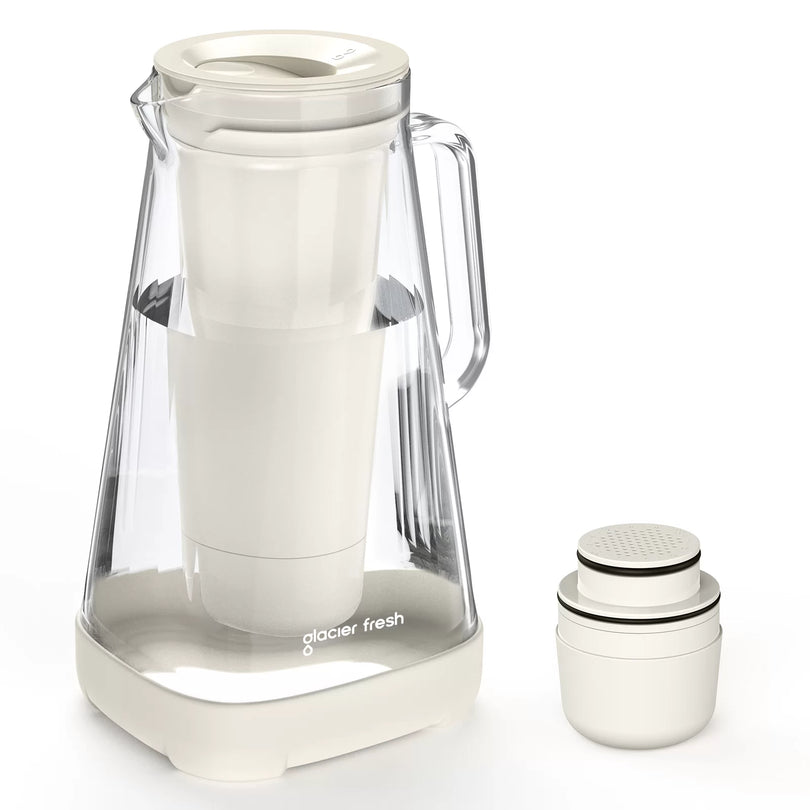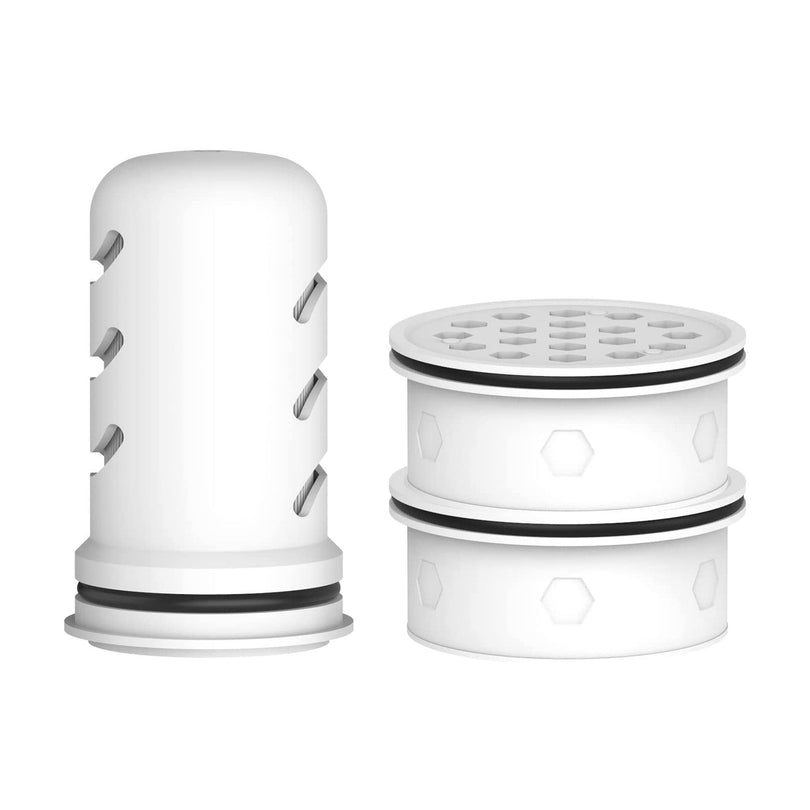Table of Contents:
Reicht kochendes Wasser aus, um es unschädlich zu machen?
Ist Flaschenwasser immer besser als Leitungswasser?
Entfernt ein Wasserenthärter alle Verunreinigungen aus dem Wasser?
Sind nur Schwermetalle im Trinkwasser schädlich?
Macht ein Wasserfiltersystem Leitungswasser 100 % rein?
Ist Wasser mit leichtem Geruch oder Geschmack noch trinkbar?
Abschluss
Wussten Sie, dass weltweit fast 785 Millionen Menschen keinen Zugang zu sauberem Trinkwasser haben? Heutzutage ist die Sicherheit Ihres Wassers von entscheidender Bedeutung. Deshalb ist es wichtig, Fakten von Fiktion zu trennen, wenn es um die Wasserfilterung geht.
Dieser Leitfaden räumt mit gängigen Missverständnissen über sauberes Wasser auf und ermöglicht Ihnen, fundierte Entscheidungen über Ihr Trinkwasser zu treffen. Wir gehen den wahren Hintergründen auf den Grund, ausgehend von der Annahme, dass das Abkochen von Wasser ausreicht, um alle Verunreinigungen durch Wasserenthärter zu entfernen.
Lassen Sie uns also eintauchen und die Wahrheit hinter der Wasserfilterung aufdecken und Ihren Zugang zu makellosem Wasser sicherstellen.
Reicht kochendes Wasser aus, um es unschädlich zu machen?

Das Abkochen von Wasser allein garantiert nicht, dass es für den Verzehr geeignet ist. Zwar tötet das Abkochen die meisten schädlichen Mikroorganismen effektiv ab, reicht aber möglicherweise nicht aus, um alle Verunreinigungen zu entfernen. Chemische Verunreinigungen lassen sich beispielsweise nicht allein durch Abkochen beseitigen. Daher gibt es andere Methoden, um chemische Verunreinigungen aus dem Wasser zu entfernen, wie zum Beispiel Aktivkohlefilter oder Destillation.
Darüber hinaus kann das Abkochen von Wasser bestimmte Verunreinigungen mit einem höheren Siedepunkt als Wasser möglicherweise nicht effektiv entfernen. Einige Verunreinigungen, wie Schwermetalle, können auch nach dem Abkochen im Wasser verbleiben. Daher ist es wichtig, alternative Reinigungsmethoden in Betracht zu ziehen, wenn diese Verunreinigungen ein Problem darstellen.
Aus ökologischer Sicht gibt es nachhaltigere Möglichkeiten für sauberes Trinkwasser als das Abkochen von Wasser. Es verbraucht viel Energie, was zu Treibhausgasemissionen beiträgt. Darüber hinaus kann die ausschließliche Verwendung von kochendem Wasser zur Reinigung gesundheitliche Risiken bergen. Durch das Abkochen werden nicht alle potenziellen Krankheitserreger und Giftstoffe entfernt; einige Mikroorganismen können kochende Temperaturen überleben.
Ist Flaschenwasser immer besser als Leitungswasser?

Man könnte meinen, Flaschenwasser sei Leitungswasser immer überlegen, aber es gibt wichtige Faktoren zu beachten. Flaschenwasser mag zwar praktisch und rein erscheinen, doch Leitungswasser ist manchmal besser. Hier sind einige wichtige Punkte, die Sie beachten sollten:
- Umweltauswirkungen : Flaschenwasser trägt zum Plastikmüll und zu den CO2-Emissionen durch den Transport bei, während Leitungswasser einen viel geringeren ökologischen Fußabdruck hinterlässt.
- Kostenvergleich : Wasser in Flaschen kann teuer sein, insbesondere bei regelmäßigem Konsum, während Leitungswasser deutlich günstiger und leichter zugänglich ist.
- Gesundheitsrisiken im Zusammenhang mit Flaschenwasser : Einige Studien haben ergeben, dass Flaschenwasser Mikroplastik und andere Verunreinigungen enthalten kann, die potenzielle Gesundheitsrisiken bergen.
- Die Rolle von Vorschriften bei der Gewährleistung der Leitungswassersicherheit : Leitungswasser wird von staatlichen Stellen reguliert, um sicherzustellen, dass es strengen Sicherheitsstandards entspricht. Flaschenwasser unterliegt hingegen einer anderen Aufsichtsebene.
- Vorteile der Verwendung von Wasserfiltern zu Hause : Die Installation eines Wasserfilters zu Hause kann für zusätzlichen Schutz sorgen, indem Verunreinigungen entfernt und der Geschmack ohne Flaschenwasser verbessert wird.
Unter Berücksichtigung dieser Faktoren wird deutlich, dass Leitungswasser genauso sicher und sogar nachhaltiger sein kann als Flaschenwasser. Durch den Einsatz von Wasserfiltern und die Einhaltung von Vorschriften können Sie den Zugang zu sauberem und zuverlässigem Trinkwasser sicherstellen, gleichzeitig Ihre Umweltbelastung minimieren und Geld sparen.
Entfernt ein Wasserenthärter alle Verunreinigungen aus dem Wasser?
Wasserenthärter können bestimmte Verunreinigungen effektiv aus dem Wasser entfernen, beseitigen aber nicht alle Schadstoffe. Sie sind zwar in erster Linie für die Lösung des Problems von hartem Wasser konzipiert, das einen hohen Anteil an Mineralien wie Kalzium und Magnesium enthält. Andere häufig vorkommende Verunreinigungen wie Bakterien, Viren, Chemikalien und Schwermetalle können sie jedoch nicht effektiv entfernen.
Um sicherzustellen, dass Ihr Trinkwasser frei von diesen Verunreinigungen ist, empfiehlt es sich, zusätzlich zu einem Wasserenthärter einen Wasserfilter zu verwenden. Wasserfilter können eine Vielzahl von Verunreinigungen, darunter Chlor, Blei, Pestizide und mikrobielle Verunreinigungen, effektiv entfernen. Sie nutzen physikalische oder chemische Prozesse, um diese Substanzen einzufangen und zu entfernen und so saubereres und sichereres Trinkwasser bereitzustellen.
Wasserfilter bieten nicht nur gesundheitliche Vorteile, sondern verlängern auch die Lebensdauer Ihrer Geräte. Hartes Wasser kann zu Mineralablagerungen in Geräten wie Geschirrspülern, Waschmaschinen und Warmwasserbereitern führen, was die Effizienz mindert und kostspielige Reparaturen nach sich zieht. Mit einem Wasserenthärter in Kombination mit einem Wasserfilter schützen Sie Ihre Geräte und sorgen für optimale Leistung.
Wenn Sie nach Alternativen zu Wasserenthärtern suchen, stehen Ihnen weitere Optionen zur Verfügung. Eine Alternative ist ein salzfreier Wasseraufbereiter, der mithilfe einer anderen Technologie Mineralablagerungen in Rohren und Geräten verhindert. Eine weitere Option ist ein Wasserfiltersystem für das ganze Haus, das ein umfassenderes Spektrum an Verunreinigungen entfernen kann als Wasserenthärter allein. Letztendlich hängt die Wahl der Wasseraufbereitungsmethode von Ihren spezifischen Bedürfnissen und der Qualität Ihrer Wasserversorgung ab.
Sind nur Schwermetalle im Trinkwasser schädlich?

Schwermetalle sind zwar schädlich im Trinkwasser, aber sie sind nicht die einzigen Schadstoffe, die Ihre Gesundheit gefährden können. Es ist wichtig, sich über weitere potenzielle Gefahren im Trinkwasser im Klaren zu sein. Hier sind einige weitere Schadstoffe, die im Trinkwasser vorkommen können:
- Mikroplastik-Verunreinigung : Mikroplastik sind winzige Kunststoffpartikel, die aus verschiedenen Quellen stammen können, beispielsweise aus Plastikflaschen und -verpackungen. Diese Partikel können in Wasserquellen gelangen und bei Verschlucken die menschliche Gesundheit gefährden.
- Bakterielle und virale Verunreinigungen : Wasser kann mit schädlichen Bakterien und Viren verunreinigt sein, die Krankheiten wie Durchfall, Erbrechen und sogar schwerere Infektionen verursachen können. Es ist wichtig sicherzustellen, dass Ihr Trinkwasser frei von diesen schädlichen Mikroorganismen ist.
- Pestizide und chemische Schadstoffe : Pestizide und andere chemische Schadstoffe können durch landwirtschaftliche Abwässer oder unsachgemäße Entsorgung Wasserquellen verunreinigen. Diese Substanzen können die menschliche Gesundheit schädigen, wenn sie in hohen Konzentrationen aufgenommen werden.
- Radioaktive Elemente im Wasser: Einige Wasserquellen können radioaktive Elemente wie Radium und Uran enthalten, die ins Grundwasser gelangen können. Längerer Kontakt mit hohen Konzentrationen dieser Elemente kann das Risiko bestimmter Krebsarten erhöhen.
- Schädliche Algenblüten : Bestimmte Algenarten können Giftstoffe produzieren, die das Trinkwasser verunreinigen können. Diese schädlichen Algenblüten können verschiedene gesundheitliche Probleme verursachen , darunter Leberschäden und Atemprobleme.
Macht ein Wasserfiltersystem Leitungswasser 100 % rein?

Ein Wasserfiltersystem kann die Anzahl der Verunreinigungen im Leitungswasser deutlich reduzieren, es aber nicht 100 % rein machen. Obwohl Heimfiltersysteme die Qualität Ihres Trinkwassers effektiv verbessern, ist es wichtig, ihre Grenzen zu kennen und alternative Methoden zur Reinigung von Leitungswasser zu erkunden.
Verschiedene Wasserfiltertypen unterscheiden sich in ihrer Wirksamkeit. Zu den gängigen Typen gehören Aktivkohlefilter,Umkehrosmoseanlagen und Destillationsanlagen. Jeder Filtertyp hat seine Vor- und Nachteile, abhängig von Ihren spezifischen Filteranforderungen. Aktivkohlefilter eignen sich beispielsweise hervorragend zur Entfernung von Chlor und zur Geschmacksverbesserung, während Umkehrosmoseanlagen viele Verunreinigungen, darunter Schwermetalle und Bakterien, beseitigen können.
Die Wirksamkeit eines Wasserfiltersystems hängt jedoch auch von der Qualität Ihrer Wasserquelle ab. Ein einfacher Kohlefilter kann ausreichend sein, wenn Ihr Leitungswasser aus einer sauberen und gut regulierten kommunalen Quelle stammt. Ein fortschrittlicheres Filtersystem kann jedoch erforderlich sein, wenn Ihre Wasserquelle mit Schadstoffen belastet ist oder aus einem privaten Brunnen stammt.
Es ist wichtig zu verstehen, dass kein Wasserfiltersystem perfekt ist. Zwar können sie viele Verunreinigungen entfernen, doch einige Verunreinigungen, wie Viren und bestimmte Chemikalien, können zurückbleiben. Regelmäßige Wartung und Filterwechsel sind unerlässlich, um die anhaltende Wirksamkeit Ihres Systems zu gewährleisten.
Wenn Sie sich über die Einschränkungen von Wasserfiltersystemen Sorgen machen, gibt es alternative Methoden, die Sie in Betracht ziehen können. Dazu gehören die Verwendung von ultraviolettem (UV-)Licht zur Wasserdesinfektion, chemische Desinfektionsmittel wie Chlor oder Jod oder sogar das Abkochen von Wasser für eine bestimmte Zeit. Jede Methode hat Vor- und Nachteile, daher ist es wichtig, sich zu informieren und die für Ihre Bedürfnisse am besten geeignete Methode auszuwählen.
Ist Wasser mit leichtem Geruch oder Geschmack noch trinkbar?

Wenn Sie einen leichten Geruch oder Geschmack in Ihrem Trinkwasser bemerken, ist es wichtig, die Ursache zu ermitteln, bevor Sie davon ausgehen, dass es trinkbar ist. Auch wenn ein leichter Geruch oder Geschmack nicht immer auf ein ernsthaftes Gesundheitsrisiko hindeutet, ist es dennoch wichtig, die möglichen Folgen zu verstehen und entsprechende Maßnahmen zu ergreifen.
Faktoren, die zum Geruch und Geschmack von Wasser beitragen
- Vorhandensein natürlicher Verbindungen : Bestimmte Mineralien und organische Stoffe können dem Wasser einen besonderen Geruch oder Geschmack verleihen.
- Chlordesinfektion : Chlor wird in Wasseraufbereitungsanlagen häufig zum Abtöten von Bakterien verwendet, kann aber auch zu einem wahrnehmbaren Geschmack oder Geruch beitragen.
- Eindringen von Verunreinigungen : Verunreinigungen wie Bakterien, Algen oder Industrieabgase können zu einem unangenehmen Geruch oder Geschmack im Wasser führen.
Auswirkungen auf die Gesundheit durch den Konsum von Wasser mit leichtem Geruch oder Geschmack
- Während Wasser mit einem leichten Geruch oder Geschmack kurzfristig möglicherweise nicht schädlich ist, kann es auf das Vorhandensein von Verunreinigungen hinweisen, die langfristige Auswirkungen auf die Gesundheit haben können.
- Zu den potenziellen Gesundheitsrisiken zählen Magen-Darm-Probleme, Hautreizungen und eine erhöhte Anfälligkeit für bestimmte Krankheiten.
Die Rolle von Wasseraufbereitungsanlagen bei der Gewährleistung von sicherem Trinkwasser:
- Wasseraufbereitungsanlagen spielen eine entscheidende Rolle bei der Entfernung von Verunreinigungen und der Gewährleistung der Trinkwassersicherheit.
- Faktoren wie eine veraltete Infrastruktur, unzureichende Filterung oder unsachgemäße Desinfektion können jedoch dazu führen, dass das Wasser einen Geruch oder Geschmack aufweist.
Häufige Verunreinigungen im Wasser mit leichtem Geruch oder Geschmack:
- Zu den üblichen Verunreinigungen zählen Bakterien, Algen, Chlor, Schwefelverbindungen und industrielle Schadstoffe.
- Diese Verunreinigungen können zu einem wahrnehmbaren Geruch oder Geschmack im Wasser beitragen.
Tipps zur Verbesserung von Geschmack und Geruch von Trinkwasser:
- Verwenden Sie einen Wasserfilter : Ein Wasserfilterkrug aus Glas kann helfen, Verunreinigungen zu entfernen und den Geschmack und Geruch Ihres Trinkwassers zu verbessern.
- Wasser im Kühlschrank aufbewahren : Durch die Aufbewahrung von Wasser im Kühlschrank können Sie die Intensität von Geschmack und Geruch verringern.
- Fügen Sie eine Scheibe Zitrone oder Gurke hinzu : Wenn Sie Ihrem Wasser eine Scheibe Zitrone oder Gurke hinzufügen, können Sie unangenehme Geschmäcker oder Gerüche überdecken.
Abschluss
So, da haben Sie es. Glauben Sie nicht alles, was Sie hören, wenn es um Wasserfilterung geht. Abkochen von Wasser reicht nicht aus, um es sicher zu machen; Flaschenwasser ist nicht immer besser als Leitungswasser, und Wasserenthärter entfernen nicht alle Verunreinigungen. Denken Sie daran: Nicht nur Schwermetalle können Trinkwasser schädigen.
Und schließlich kann ein Wasserfiltersystem die Reinheit des Leitungswassers beeinträchtigen. Ignorieren Sie leichte Gerüche oder Geschmacksnoten im Wasser nicht – sie können ein Hinweis auf Verunreinigungen sein. Informieren Sie sich und treffen Sie kluge Entscheidungen für sauberes, sicheres Trinkwasser.

